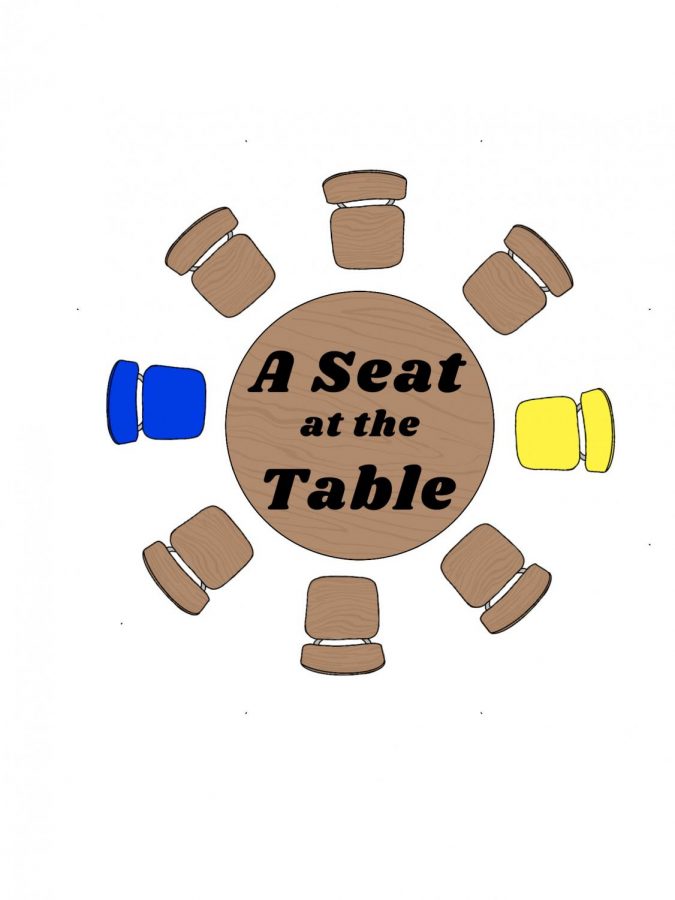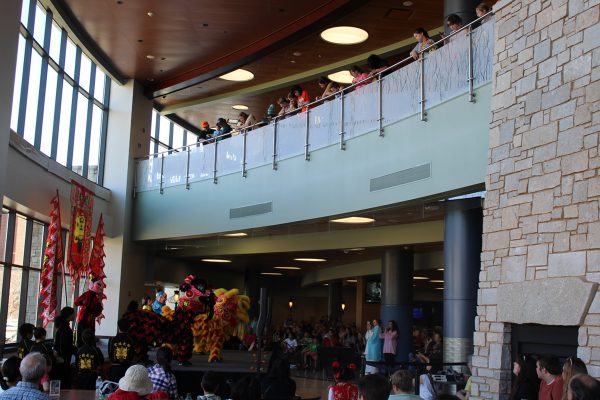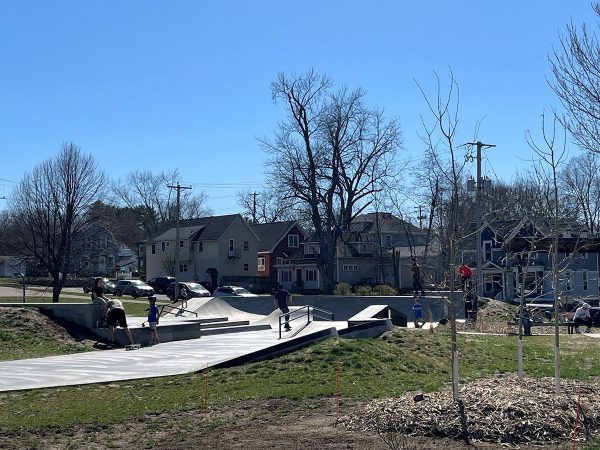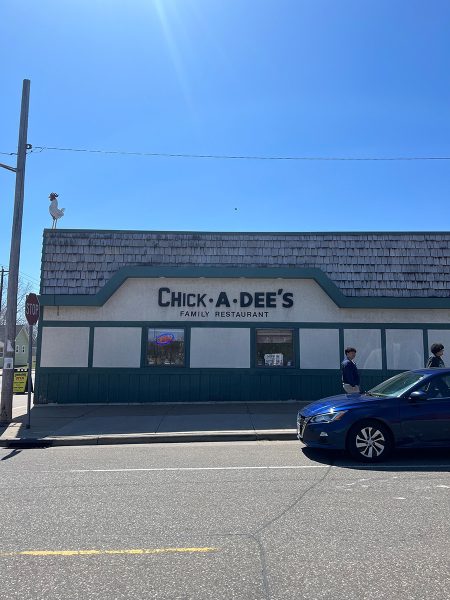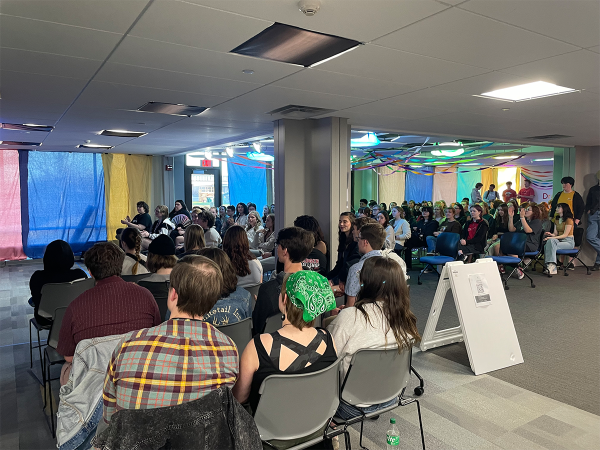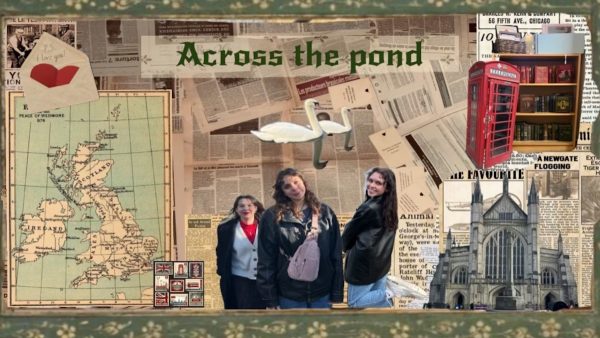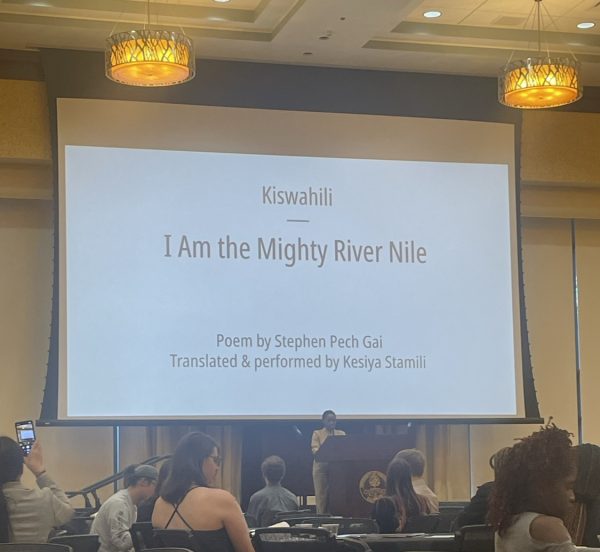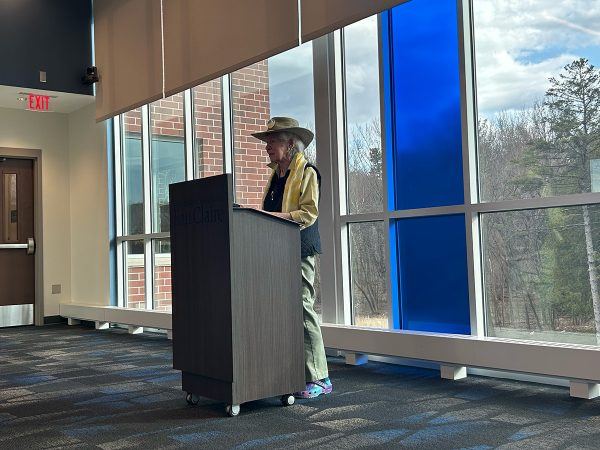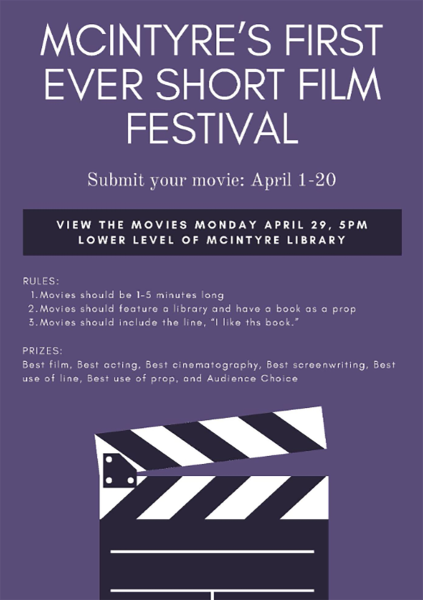A seat at the table
Viral TikTok aids toward a more sustainable campus
Photo by Bethany Mennecke
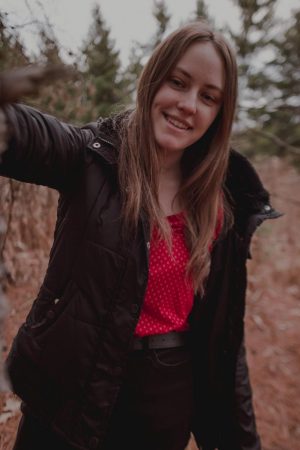
Megan Gosian, a second-year elementary and special education student, spent her fall semester at UW-Eau Claire collecting dining hall cups to bring to the Davies Student Center’s composting containers.
In a viral TikTok video, now with over 1 million views and 173,000 likes and reshares, Gosian and her roommates brought the internet along to watch their journey to lower campus in an effort to promote more sustainable practices.
Gosian said she works as a campus ambassador, and due to COVID-19 regulations — placed on the campus dining services — there have been a lot of problems with overflowing trash cans on the upper campus.
“This isn’t how I want to show my campus to potential Blugolds,” Gosian said.
Kai Olson, a second-year material science and engineering student — and Gosian’s roommate — said the video is focused on taking advantage of the compostability of the cups rather than throwing them away, as most students do.
Most of the cups and soup bowls provided by on-campus dining are compostable and can be discarded in the composting bins located in the Davies Student Center, according to the UW- Eau Claire website.
Olson said through his area of study and his active role as an Eagle Scout, he has always placed value in reusing, reducing and recycling. Composting seemed like an obvious extension of this to take part in, he said.
Both Gosian and Olson said they were impressed by the amount of outreach received from the viral video and felt encouraged to go further with their composting efforts. Following the video’s release, they contacted the Student Office of Sustainability for further action.
“I started learning way more about composting when we came to Eau Claire,” Gosian said. She said the Student Office of Sustainability put on a “recycling challenge” during the start of their first year that has helped them remember the importance of composting and recycling.
Lauren Becker, director of the Student Office of Sustainability, said it is amazing how Gosian and her roommates are going to such an extent in order to compost.
“We see a really common occurrence where students like Megan, come up with [their] own ways to alter the systems that require just a little bit of effort on our part,” Becker said.
Olson and Gosian said there is a greater need for not only compost drop off sites on upper campus but also visible directions on how to properly dispose of each waste product.
“We have to make that extra effort,” Gosian said. “We need people to really take it on as their responsibility.”
They said greater access to sustainable systems makes it easier to make a conscious effort to do better.
“This is something we’ve seen students ask for as long as I’ve been here and a lot longer before that,” Becker said.
The systems on campus should already support doing the right thing without placing an extra burden on students, staff, or faculty members, Becker said.
Education creates the most fundamental basis to encourage people at all levels in positions of power to create these sought after sustainable systems.
TikTok and other social media platforms have fostered educational environments in which users are able to promote more sustainable practices and cultivate a community with like-minded individuals.
Gosian said infographics found online have guided her toward more environmentally conscious habits. She has also seen many people reposting educational resources from activism-centered accounts.
“I think a lot can be said about the way technology has connected us,” Becker said. “In terms of sustainability initiatives, technology has done us a service by normalizing the conversation surrounding a pretty dark and bleak concept.”
Becker said she felt encouraged knowing she — and other students — could see the video of Gosian and Olson making an extra effort to be environmentally conscious, and know she is not alone in her sustainability efforts.
Online sustainability efforts have also created avenues of action where people of all accessibility levels are able to be involved on various platforms. Beyond self-education and promoting sustainable practices, Becker said email and petition templates are strong methods of demanding change.
Both online and offline efforts create a space to hold a conversation about why there is a need for a sustainable infrastructure within the university.
Gosian’s video shines a light on the different facets of environmental activism as it shows them making a change in a very tangible way, as well as acts of encouragement for other students.
Becker emphasized how all sustainability work is intersectional. She said regardless of a student’s area of study, they are able to incorporate sustainability at the forefront of their work with ethical, inclusive and educational practices.
Both Gosian and Olson show how making small changes in a daily routine can result in a much greater impact in the long run.
The friends have now started a new collection of compostable cups to continue their sustainability efforts for the next semester, Gosian and Olson said.
“You have to take initiative,” Gosian said. “Make it a habit, look into how to form habits and really choose to be aware of the things you’re buying and consuming and what you’re going to do with them.”
Gómez can be reached at [email protected].
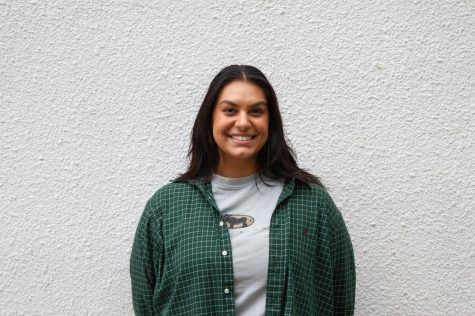
Rosa Gómez is a second-year political science and journalism student. This is her first semester on The Spectator staff. She enjoys rainy days, reading and all things social justice!

